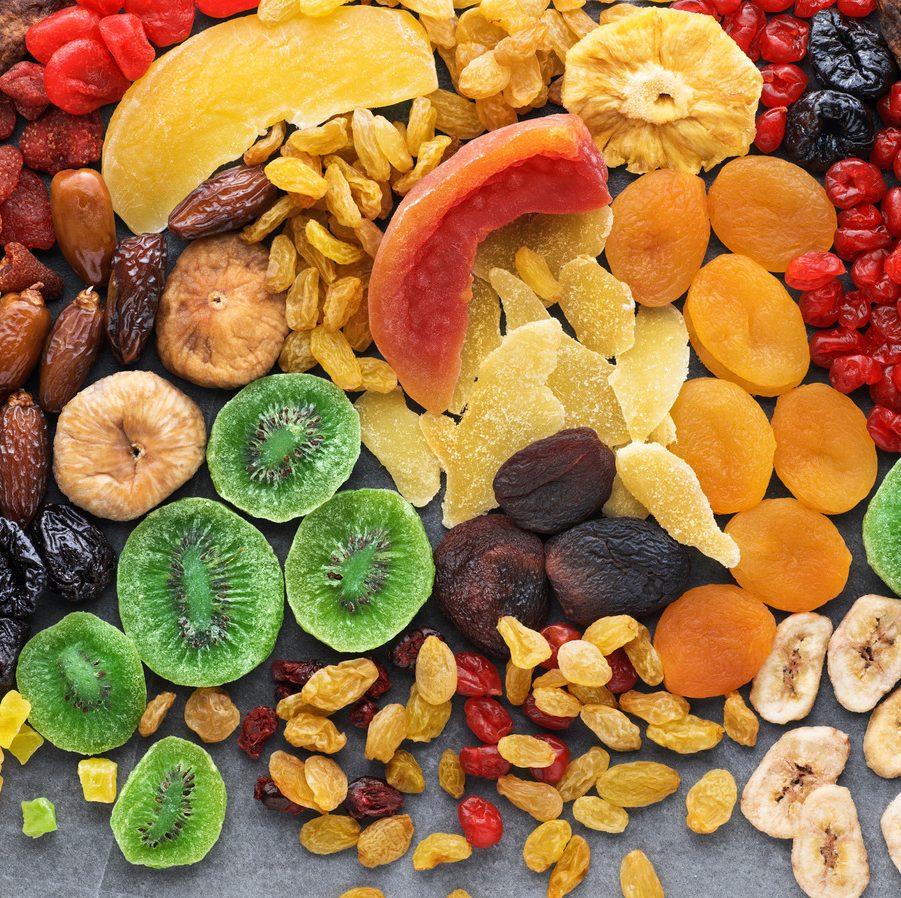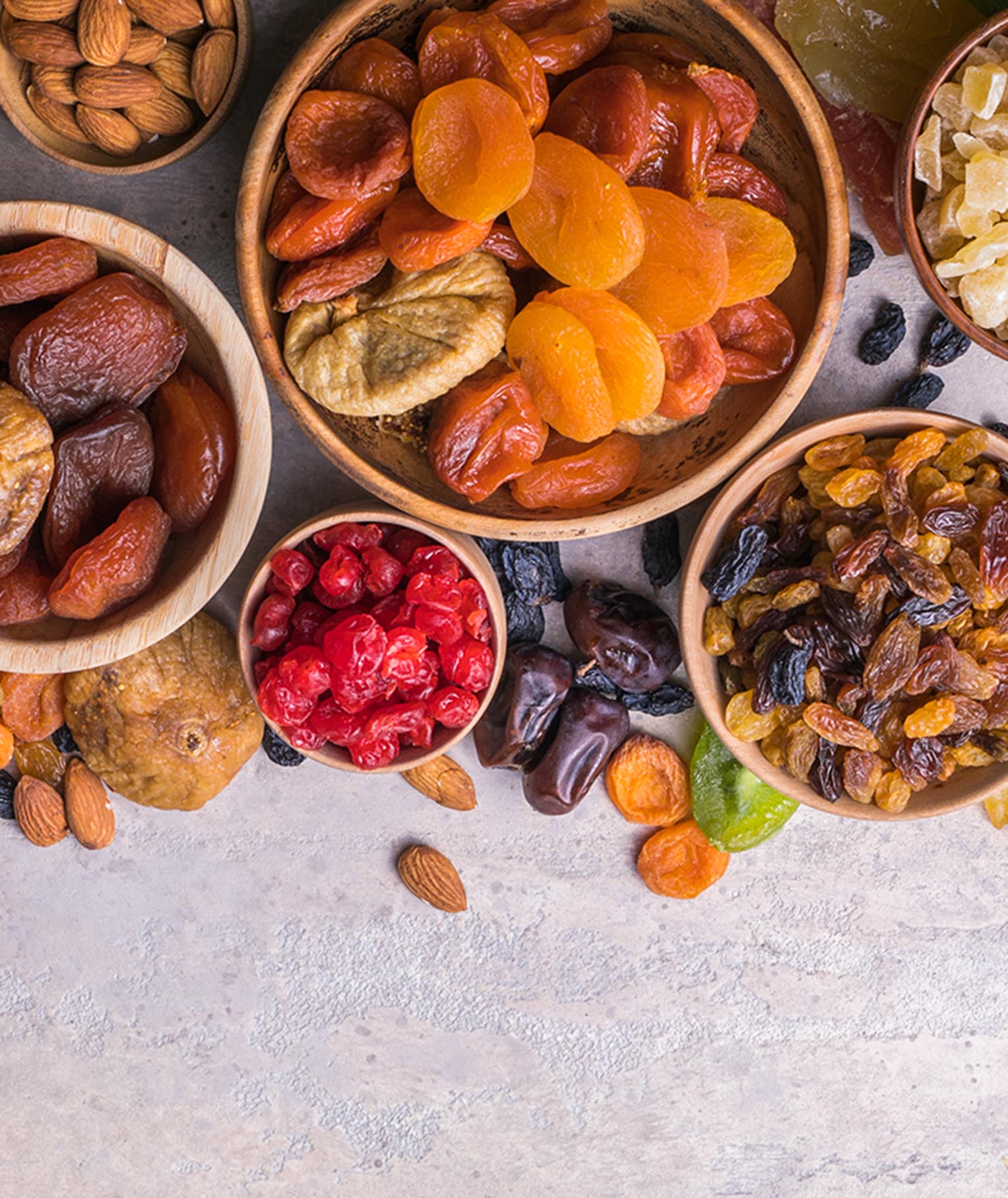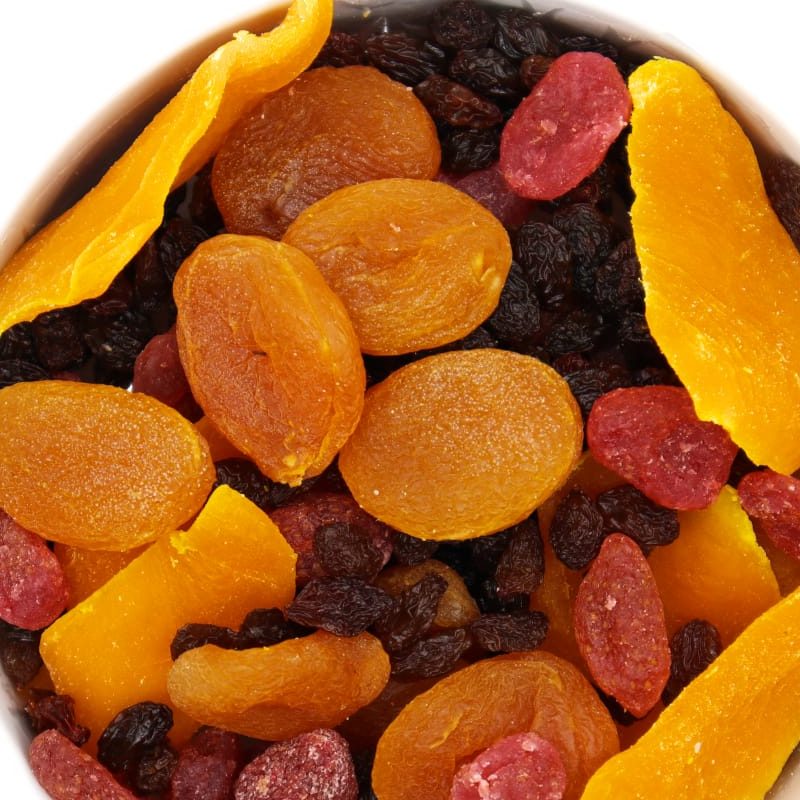The Impact of Dry Fruits on Blood Sugar Levels
Is dried fruit healthy for diabetics?When it comes to managing diabetes, understanding the effects of different foods on blood sugar levels is crucial. Dry fruits, with their concentrated sources of nutrients and natural sugars, can have varying impacts on blood glucose. The key is to select fruits that have a low glycemic index (GI), which means they release glucose slowly into the bloodstream, preventing spikes in blood sugar levels. It’s imperative for diabetics to choose dry fruits that strike the right balance between nutritional benefit and glycemic control.
Low Glycemic Dry Fruits Suitable for Diabetes Management
Dry fruits that are low on the glycemic index are the preferred choice for individuals managing diabetes. These include options like:
- Apricots: Fresh apricots have a GI score of 34 and when dried, they maintain a low to medium GI. Their sweet yet mellow taste makes them a great addition to a diabetic-friendly diet.
- Plums: Known as prunes when dried, have a low GI score and are also rich in dietary fiber, aiding in digestion and curbing appetite.
- Almonds: Though technically a nut, almonds have a low GI and are rich in healthy fats, protein, and fiber, making them an excellent choice for blood sugar management.
These fruits not only help to manage blood sugar levels but also offer vitamins, minerals, and fiber that contribute to overall health. However, moderation is key, and it’s important for individuals with diabetes to monitor their portion sizes.

Nutritional Benefits of Select Dry Fruits for Diabetics
In addition to their low glycemic properties, certain dry fruits provide a plethora of health benefits that are especially beneficial for those with diabetes. These benefits include:
- Rich in Fiber: Fiber helps to slow down the absorption of sugar, contributing to more stable blood glucose levels. Many dry fruits, like apricots and prunes, are high in fiber.
- Antioxidants: Dry fruits like raisins and prunes are loaded with antioxidants, which help protect cells from damage due to free radicals and can also assist in reducing inflammation.
- Vitamin and Mineral Rich: Almonds, for example, are a good source of magnesium, a mineral that plays a critical role in controlling blood sugar, while also offering vitamin E and healthy fats.
- Healthy Fats: Nuts such as almonds and walnuts contain essential fatty acids, known for supporting heart health and weight management—two aspects that are especially important for those with diabetes.
Is dried fruit healthy for diabetics? By carefully selecting and consuming dry fruits with these nutritional advantages, diabetics can enjoy the flavors and health benefits they offer. However, it’s always recommended to consult with healthcare professionals before making dietary changes, as individual needs can vary greatly.
Best Dry Fruits for Diabetes and Their Health Benefits
Selecting the best dry fruits for diabetes care involves understanding the health benefits each one offers, alongside their impact on blood sugar levels. Some dry fruits are particularly beneficial for managing diabetes due to their nutritional profile and the specific advantages they provide.
Almonds: Controlling Insulin and Improving Heart Health
Almonds are a powerhouse when it comes to nutritional benefits for diabetics. They not only have a low glycemic index, which aids in controlling insulin levels, but are also abundant in vitamin E and antioxidants. These nutrients are essential for improving blood sugar levels and maintaining a healthy digestive system. Additionally, almonds contribute to reducing the risk of cardiovascular disease. Consuming a controlled number of almonds daily, especially if they are soaked in water, can significantly benefit those with type 2 diabetes.

Walnuts and Cashews: Weight Management and Anti-Diabetic Properties
Both walnuts and cashews are worthy additions to a diabetic’s diet plan. Walnuts are rich in Omega-3 fatty acids, which are known for their heart-protective qualities. They also have a positive effect on body weight, which is a crucial aspect of diabetes management. Cashews, on the other hand, have been shown to possess anti-diabetic properties. With healthy fats, they can help regulate blood sugar and blood pressure levels. However, it is important to consume these nuts in moderation and preferably unsalted to avoid any unwanted increase in sodium intake.
Pistachios and Peanuts: Cholesterol Control and Satiety
Pistachios are another excellent choice for individuals looking to manage diabetes. They are not just beneficial in controlling weight due to their ability to induce satiety. But also play a significant role in managing cholesterol levels. This contributes to a better cardiovascular health profile. Which is important for diabetics who are at increased risk of heart disease. Peanuts, similarly, have a low glycemic index and are full of fiber and protein. They make for a healthy snack that helps in regulating glucose levels. The key is to avoid the salted varieties, as excess sodium can lead to hypertension.
When including these dry fruits in a diabetic diet, one must pay close attention to the portions and frequencies of consumption to ensure optimal benefits without compromising blood sugar control. Moreover, always discuss dietary adjustments with healthcare providers to tailor the diet according to individual health needs and diabetes management plans.

Guidelines for Incorporating Dry Fruits in a Diabetic Diet
Incorporating dry fruits into a diabetic diet requires careful consideration to maintain blood sugar levels while reaping the health benefits. Here are some key guidelines to follow.
Portion Control and Frequency of Consumption
Moderation is the cornerstone of including dry fruits in a diabetic diet. Since dry fruits are nutrient-dense and have natural sugars, their portions need to be managed meticulously:
- Measure Your Portions: Stick to small, measured amounts of dry fruits. For instance, a handful of raisins or a few pieces of dried apricots can be enough for a day.
- Spreading Intake: Distribute your dry fruit consumption throughout the day. This helps in preventing sudden spikes in blood glucose levels.
- Regular Monitoring: Keeping track of your blood sugar levels after consuming dry fruits can help decide which types and amounts are suitable for you.
Always remember that the total carbohydrate content of the meal should be consistent with your overall meal plan, and that includes the carbohydrates from dry fruits.
The Role of Natural Sugar in Dry Fruits
Dry fruits contain natural sugars, which can impact blood sugar levels, but they differ from processed sugars. Here’s how they fit into a diabetic diet:
- Natural vs Processed Sugars: Unlike processed sugars, the natural sugars in dry fruits come with fiber, vitamins, and minerals that provide added health benefits.
- Choosing Wisely: Opt for dry fruits with lower glycemic indexes, like cherries or dried apples. Which have a slower effect on blood glucose.
- Understanding Glycemic Response: Individual reactions to dry fruits can vary; monitoring your glycemic response is therefore essential.
Importance of Consulting Healthcare Professionals
is dried fruit healthy for diabetics?Before making any significant changes to your diet, it’s important to seek advice from healthcare professionals like dietitians or endocrinologists:
- Personalized Diet Plan: A professional can help tailor a diet plan that accommodates your taste preferences, nutritional needs, and blood sugar control requirements.
- Health Evaluations: Regular check-ups and consultations are essential to adjust your diet as your health condition changes over time.
- Educational Resources: Healthcare professionals can provide valuable insights and educational materials that empower you to make informed decisions about your diet.

Shopping and Storage Tips
Selecting Quality Dried Fruits
Is dried fruit healthy for diabetics?When shopping for dried fruits, it’s crucial to read labels carefully. Choose products that contain no added sugars, as these can lead to unwanted spikes in blood sugar levels. Look for options that are labeled as unsweetened or “no sugar added.” Organic dried fruits are another excellent option, as they are typically free from pesticides and artificial additives. Additionally, check for preservatives such as sulfur dioxide. Which some people may want to avoid.Selecting high-quality dried fruits ensures you get the maximum nutritional benefits without unwanted additives. Some risks that can be avoided for people with diabetes
Proper Storage
Storing dried fruits properly can help maintain their freshness and nutritional quality. Is dried fruit healthy for diabetics? Keep dried fruits in airtight containers to prevent moisture exposure, which can lead to spoilage. Store them in a cool, dark place, like a pantry or cupboard, to preserve their flavor and nutrients. If you buy dried fruits in bulk, consider storing them in the refrigerator or freezer to extend their shelf life. Proper storage practices ensure that your dried fruits remain fresh and ready to enjoy whenever you need a healthy snack.

Conclusion
Is dried fruit healthy for diabetics?Dried fruits can be a healthy and delicious addition to a diabetic diet when chosen carefully and consumed in moderation. High in fiber, vitamins, and minerals, they offer numerous health benefits that support overall well-being and blood sugar management. By selecting the right types of dried fruits, managing portion sizes, and incorporating them thoughtfully into meals. You can enjoy the sweet and nutritious benefits of dried fruits without compromising your health. Following shopping and storage tips also ensures that you get the best quality and flavor from your dried fruits. Whether you’re looking for a quick snack or a flavorful addition to your meals. Dried fruits offer a versatile and health-conscious option for diabetics.

